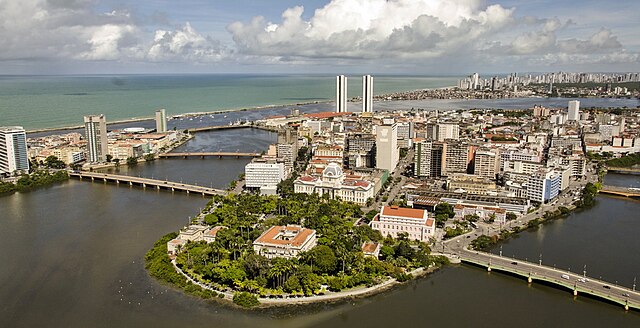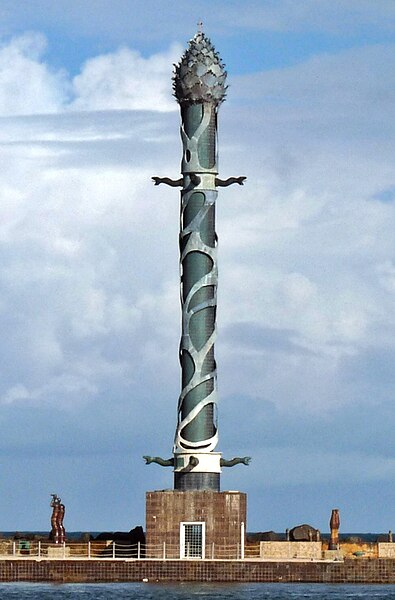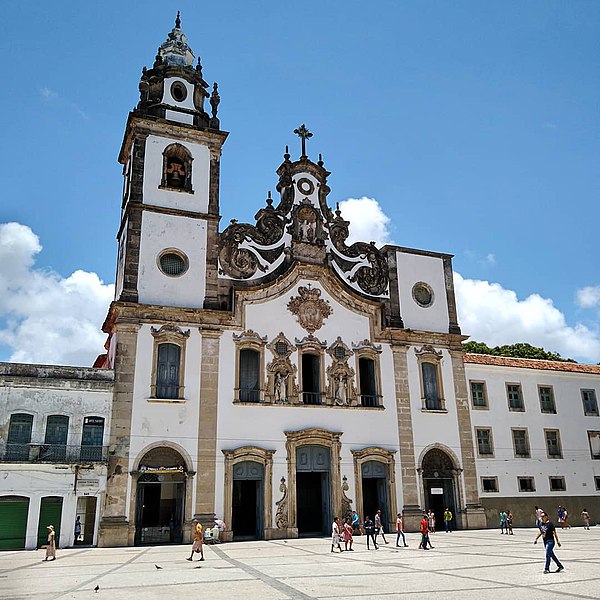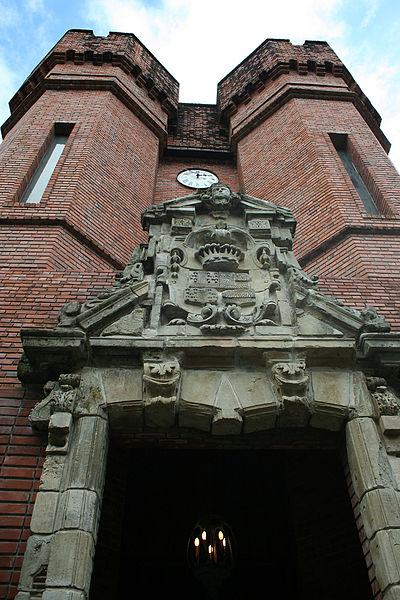Frevo is a dance and musical style originating from Recife, Pernambuco, Brazil, traditionally associated with Brazilian Carnival. The word frevo is said to come from frever, a variant of the Portuguese word ferver. It is said that the sound of the frevo will make listeners and dancers feel as if they are boiling on the ground. The word frevo is used for both the frevo music and the frevo dance.
Frevo was included on the UNESCO's list of intangible heritage.
Recife is the state capital of Pernambuco, Brazil, on the northeastern Atlantic coast of South America. It is the largest urban area within both the North and the Northeast Region of Brazil. It is the largest city in Pernambuco state, and the fourth-largest urban area in all of Brazil, home to roughly 4,054,866 people including the adjacent suburbs; the metro population of the city of Recife was 1,653,461 in 2020. Recife was founded by the colonial Portuguese Empire in 1537, serving as the main harbor of the Captaincy of Pernambuco—known for its large-scale production of sugar cane. At one point, it was known as Mauritsstad, when it served as the capital city of the 17th century colony of New Holland of Dutch Brazil. Situated at the confluence of the Rivers Beberibe and Capibaribe, before they drain into the South Atlantic Ocean, Recife is a major seaport along the Brazilian Atlantic coast. Its name is an allusion to the stone reefs that are present offshore. Together with the urban presence of the Beberibe and Capibaribe Rivers and their tributaries, the many additional unique, small islands—and more than 50 bridges linking them throughout the city—create a distinct maritime or "riviera" atmosphere, leading to Recife being known as the "Venice of Brazil".

Image: Antonio Vaz island Recife, Pernambuco, Brazil (cropped)
Image: Torre de Cristal Recife PE(2) (cropped)
Image: Basílica do Carmo Recife (PE)
Image: Castelo de Brennand





